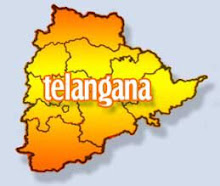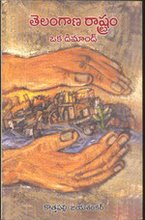The people of Telangana are once again restive, reiterating their demand for a separate state. The demand of the people of this region for a separate state is not a new development. It was voiced much before the formation of Andhra Pradesh and continues to be raised even thereafter. The reason for the opposition of people of Telangana to join Visalandhra (metamorphosed to Andhra Pradesh) was fear of neglect and injustice in the enlarged state and the reason for their refusal to continue in the present state is the actual experience of becoming victims of neglect and injustice. The States Reorganization Commission (SRC) set up by the government of India in early 50s to examine the question of reorganization of states of the country was, in fact, not in favour of merging the Telangana region with the then Andhra state. After a very careful examination of the issues involved the SRC recommended: "... It will be in the interest of Andhra as well as Telangana if, for the present, the Telangana area is constituted into a separate state which may be known as the Hyderabad state, with provision for its unification with Andhra after the general elections likely to be held in or about 1961, if by two-thirds majority the legislature of the residuary Hyderabad state expresses itself in favour of such unification". (SRC Report: Para 386)
The commission further recommended: "Andhra and Telangana have common interests and we hope these interests will tend to bring the people closer to each other. If, however, our hopes for the development of the environment and conditions congenial to the unification of the areas do not materialize and if public sentiment in Telangana crystallizes itself against the unification of the two states, Telangana will have to continue as a separate unit". (SRC Report: Para 388)
The Commission came to this conclusion after a dispassionate assessment of feelings of the people of Telangana and the fears entertained by them. Elaborating the reasons for recommending statehood for the Telangana region the Commission observed: "One of the principal causes of opposition to Visalandhra also seems to be the apprehensions felt by the educationally backward people of Telangana that they may be swamped and exploited by the more advanced people of the Coastal areas...The real fear of the people of Telangana is that if they join Andhra they will be unequally placed in relation to the people of Andhra and in this partnership the major partner will derive all the advantages immediately while Telangana itself may be converted into a colony by the enterprising Andhras". (SRC Report: para 378)
Further, the SRC cautioned the nation against the dangers involved in reorganizing the Indian states solely on linguistic considerations. One of the rational criteria recommended by the Commission, while reorganizing the states, was: "... to reject the theory of ‘one language one state’ which is neither justified on grounds of linguistic homogeneity, because there can be more than one state speaking the same language without offending the linguistic principle, nor practicable, since different language groups, including the vast Hindi speaking population of the Indian Union, cannot always be consolidated to form distinct linguistic units". (SRC Report: para 163)
In addition, the Prime Minister of the time, Jawaharlal Nehru, also was not in favour of merging Telangana with the Andhra state. He ridiculed the demand for Visalandhra as an idea bearing a "tint of expansionist imperialism". (Indian Express, October 17, 1953).
Yet, paradoxically, the state of Andhra Pradesh was formed on 1st November 1956 - ignoring the wishes of people of Telangana, against a categorical recommendation of the SRC and contrary to the views of the tallest leader of the time, Jawaharlal Nehru. It was the outcome of manipulative politics...
Click Here to Read the full article (In PDF Format)
HOME PAGE
HOME PAGE

